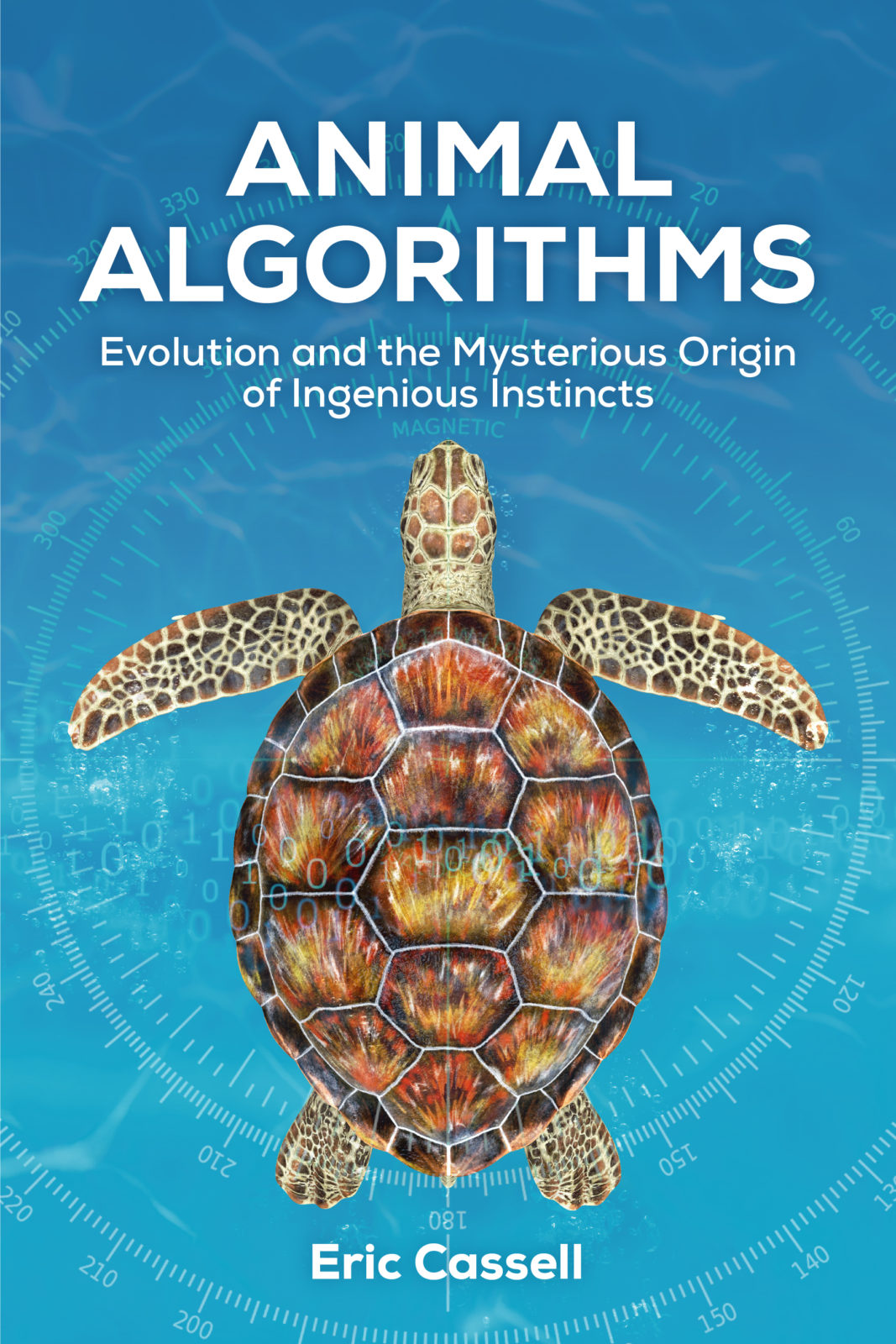
An exploration of the stunning findings in Eric Cassell’s new book, “Animal Algorithms”:
You’re aiming to find your childhood friend’s home in a new city. A map helps; GPS is better. Accessing all that previously-acquired mapmakers’ knowledge, employing all of that satellite, radio and computing technology, you’ll probably (although not certainly) reach your goal. Could some “dumb bird” do any better?
Way better, actually.
Baked-in Brain Power
A bird born near Wales (UK) knows how to fly over 6,200 miles (10,000 km) south in the winter, following the west coastlines of Europe and Africa, then crossing the Atlantic Ocean to land in Argentina. The same bird knows how to return to its original home a few months later. She flies north along the east coasts of South and North America, then crosses the Atlantic back to her birth location. No education or training, no YouTube teaching video, not even a mentor shows the bird, a Manx shearwater, how to accomplish this navigational feat. How does she know the way and what tools does she use?
The Manx shearwater’s extraordinary story of innate intelligence is just one that Eric Cassell, an engineer of aircraft navigation systems, explores in his book, Animal Algorithms (2021).
Richard W. Stevens, “The intelligence birds and bees naturally have — and we don’t” at Mind Matters News
Takehome: Cassell observes that it would take deep thought and sophisticated design techniques to build a robot to accomplish what the bees, ants and termites can do
Here’s an excerpt from the just-published book, Animal Algorithms: Evolution and the Mysterious Origin of Ingenious Instincts (2021):
Complex programmed behaviors are evident throughout the animal kingdom, but in these pages the focus will primarily be on less advanced animals. The reason is that more advanced animals, such as primates, have significant cognitive ability, so they exhibit much more of a combination of programmed and learned behaviors, and in such cases the two are not always easily disentangled. It is easier to discriminate between programmed and learned behaviors in less advanced animals, such as bees and butterflies.
Explaining the origin of these programmed animal behaviors in evolutionary terms is challenging because the behaviors themselves are, in many cases, quite complex and likely undergirded by an extraordinarily sophisticated neurological substrate. Animal behaviors are also strikingly diverse, arguably just as diverse as the breathtaking diversity of physical characteristics we find in the animal kingdom. Those factors alone do not mean the explanatory task is impossible. But it does mean that something more than breezy just-so stories are required to provide a causally adequate explanation for their evolution.
Eric Cassell, “Genius in Lilliput” at Evolution News and Science Today (November 9, 2021)